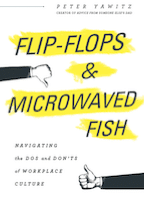
Are you involved in the global business world?
Do you need to communicate daily with colleagues from a different culture?
Do you ever worry that you’re not understanding things correctly in English?
Today we’re going to look at how to communicate more effectively in your global workplace, and to ensure that you reach your potential professionally.
We have an expert on the show to help you to understand these tips, and how to put them to work for you.
Get Your Transcripts Today!

Make sure you understand every word you hear on All Ears English.
Bring your English to the advanced level with new vocabulary and natural expressions.
Subscribe and get the transcripts delivered by email.
Learn to speak naturally with the American accent.
Click here to subscribe and save 50%
Learning How To Take An Active Role In Communicating More Effectively
We are going to look at three simple but powerful things you can do at work to communicate better.
By learning these three simple things you will have more confidence, be able to communicate more effectively, and be successful in your professional life.
Today on the show we have Peter Yawitz, who is a management communications consultant, who works with global companies to communicate more effectively.
He is the President of Clear Communication, and he is a facilitator for global communications.
In Peter’s research, he has been asked what comes first, the culture of the company or our own cultural norms.
Time Urgency in American Business
Time urgency is a major feature of American business culture. There are certain phrases such as “cut to the chase” that Americans use which can be very frustrating if English is not your first language. We also say things like, “what’s the point” or “get to the bottom line.”
In the American business world people don’t want to waste their precious time having to explain things over and over again.
We have to understand that fact in order to be successful in business in places like New York City.
Three Tips To Communicate More Successfully At Work
These three tips are easy but powerful and will serve you well professionally speaking.
Don’t ever be afraid to use these tips, and know that they will help you to be more successful in the long run.
- Never leave the room without repeating: This demonstrates understanding, and also ensures that you are double checking that you got it right. You can say something like, “Let me make sure I heard this correctly.” This can cut through any barriers or issues if there is an accent present or perhaps something gets lost in how it comes across. If there is a language barrier, then this helps to recap things and ensures understanding. This puts people at ease and ensures that there was understanding when you are listening to somebody. Then you can get to work and ensure that you are doing the right thing.
- Don’t ever be embarrassed to ask for confirmation: It doesn’t necessarily mean that you don’t understand English. It may have just been that the person or the direction wasn’t clear. It can be great to ask for an example.
- Don’t worry about mistakes: If you have an accent, there’s nothing wrong with asking for clarification. It’s great to say “if I”m not getting the English right, then please correct me.” This is nothing to feel bad about and actually helps you and helps the person you are talking about. This puts the disclaimer out there that you want to be sure that you are coming across the right way. This doesn’t make you less, it actually makes you better–because this can help you to ensure that you are being understood. It helps the person you are talking to because it puts them at ease to ask for clarification if necessary. This is you taking an active stance to take care of things in advance. This works so much better than taking a passive stance and just waiting for somebody to tell you they need clarification.
These three tips can help you tremendously to find professional success.
These can help you to build confidence, get what you want, be more assertive, and also ensure that you do all of this in a polite way at the same time.
Taking A Proactive and Straightforward Approach
What do you do when you’re listening?
Don’t pretend to understand by making eye contact and you nodding your head.
This hurts you if you don’t truly understand what is going on or being asked of you.
This also hurts your manager or the person giving you direction because then they won’t get what they need.
Managers will not be upset and you won’t come across as rude if you ask for confirmation.
It shows your competence if you reiterate what was just said or ask for confirmation.
This is a great skill to use in meetings or in conversation.
Asking the right questions at the right time can be a huge help and a strength in building confidence and professional success.
Finding A Balance Between Polite and Assertive
Be assertive and know what you want, but be polite about it.
Say in a meeting “what I would like to accomplish today…..and at the end of this meeting I want to be sure that you have clarification so that we can move forward.”
You want to be assertive but ensure that you don’t come on too strong, and that’s where it’s important to be polite.
If you end up having to go through a series of meetings because there isn’t clarification, then this can cause problems and potentially wasted time.
You don’t want to waste time, and your manager doesn’t want you to waste their time either.
If you ensure that people understood you and that you understood them, then you can move forward with clarity and confidence.
So try one of these tips tomorrow at work and see how it helps you.
This can all help you to build confidence, come across more clearly, and ensure that you get what you want and need out of business interactions.
Carrying This Over To Emails
This applies to emails as well, so you want to think about how you come across in business emails.
Starting off your emails with something that is polite is a great thing.
After that however, you want to state why you are writing and what you want.
This is to the point, but not too aggressive or bordering on coming off the wrong way.
You can ask three questions for example and number them, so that it’s very clear and concise what information you are looking for.
You even want to think about the subject line because it matters too.
You want even your subject line to be to the point such as “Three Questions For You.”
Then the reader will know what you are looking for and the purpose of the email.
Wrap up with something polite but also asking for information and a follow up.
You are maintaining the relationship as well as asking for what you need in a clear and confident way.
Email is important within the business world and it’s a big part of your professional life.
You want to be sure that you put thought into this, even if you’re only used to texting.
You can be even more successful professionally if you use this strategy in email as you would in any other form of communication.
Takeaway
Peter brings expertise from the communications field with tips that you can use to be more successful in your professional life.
You can find Peter online–his website is peteryawitz.com and you can also find his new book there, or you can find his book on Amazon in Kindle format.
Try these three tips that balance being polite with being assertive to ask for what you really want.
You want to be sure that there is clarification on both sides, and these tips can help that.
Be sure that you understand what is being said or asked of you.
Also be sure that others can understand you, and don’t take this as a negative but rather a proactive positive.
All of this can help you to be more successful in your professional life, and ensure that you are more confident along the way.
Peter’s Bio:

Peter Yawitz is the president of Clear Communication (clearcommunication.net) and founder, host, author, and advice columnist at Advice from Someone Else’s Dad (someoneelsesdad.com). He has been a communication coach, consultant, teacher, and facilitator for global companies for 30 years and for 10 years before that, was an eager young employee in fast-paced American workplaces wishing for advice on how to make smart work decisions and fit in. Today, he trains individuals and teams around the world, helping them communicate effectively internally and externally, manage upward and sideways, and navigate the personalities, priorities, and peculiarities of their workplaces and their various constituencies.
His book, Flip-Flops and Microwaved Fish: Navigating the Dos and Don’ts of Workplace Culture is full of great advice and humor for young professionals entering the workforce or for anyone who feels a bit uncertain about how to communicate at work. He lectures at global universities and corporations where his extremely well-received interactive sessions are a mixture of practical action steps, interesting self-discovery, and lots of fun and laughs. Born and raised in Manhattan, where he still lives, he received an undergraduate degree from Princeton University and an MBA from the Wharton School of the University of Pennsylvania. Peter also won the 2005 Nightlight Award for Outstanding Musical Comedy Performance from the New York City cabaret, jazz, and comedy critics, and the Backstage Magazine Bistro Award for comedy writing.
If you have any questions, please leave them below in the comments section.
We’ll get back to you as soon as we can.








